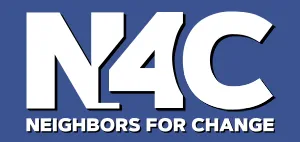
The Trump administration axed $300 million in health funding from Virginia. How will this attack on healthcare and research impact Virginians?
Once upon a time, my family journeyed to Maryland for a visit to the National Institutes of Health (NIH). My daughter’s neuromuscular condition was baffling her medical team, so her neurologist referred her to NIH where a team of renowned pediatric neurologists tackled her case and she was finally diagnosed. In addition to the relief of knowing her condition’s cause, the diagnosis led to a more targeted treatment approach.
While there, I met a fellow parent and exchanged stories about what brought us to NIH. His six-year-old daughter was there because of life-threatening tumors that erupted in multiple organs. They had made multiple trips from the West coast for a special medication because the tumors kept returning.
Their story revealed that the stakes couldn’t be higher: the NIH was the difference between life and death for that child.
The National Institutes of Health is America’s superpower
NIH is “the largest supporter of biomedical research in the world.” In fact, it outsources 80% of its budget for medical research to universities and institutes across America.
Congresswoman Jennifer McClellan (VA-04) noted that
Virginia has a thriving life sciences industry that benefits from federal investments in the National Institutes of Health. These investments save lives, as Virginia institutions like VCU, UVA, and Virginia Tech lead the way on research into cancer, heart disease, maternal health and so much more. Nationally, every dollar invested in NIH generates $2.56 of economic activity.
The dire cost of Virginia’s $300 million health funding loss
Despite the obvious benefits from NIH research and grants—disease prevention, a thriving economy, and healthy families—the Trump administration axed $300 million in health funding from Virginia. Furthermore, “Since January, 1,300 NIH employees have been fired and more than $2 billion in research grants cancelled (CBS News).”
Henrico County alone faces an estimated loss of $12 million from federal health research cuts, which will impact tuberculosis research, suicide prevention, and addiction treatment programs. The financial hit to addiction treatment programs comes at a time when Richmond and Roanoke, Virginia have the “highest non-fatal overdose rates in the country.”
Given the potential loss of life from these drastic measures, is it hyperbole to say that the cuts are truly a matter of life and death for many Americans?
The very foundation of NIH is about being proactive about our health. The idiom “an ounce of prevention is worth a pound of cure” has never been more salient. Let’s join forces to reinstate Virginia’s health funding before it’s too late.onal experience, determination, and ethics to cut through the increasing disarray and disorder Virginians face—enabling us to thrive in a brighter future.
Take Action
- Share this MotherJones article about how Project 2025 architect Russell Vought supported defunding the NIH agency that developed cutting-edge medication to treat his daughter, who has cystic fibrosis.
Learn More
- Watch this 60 Minutes segment about the NIH cuts from the perspective of Dr. Francis Collins, NIH’s longtime director.




